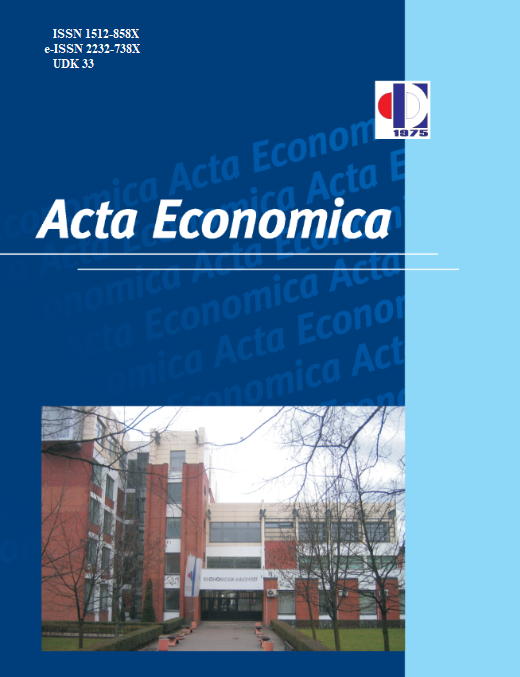Geopolitical Constraints on Development Policies of Small Countries
DOI:
https://doi.org/10.7251/ACE1726009MAbstract
Unlike competitive markets with theoretically infinite number of agents whose decisions merge into a large mass of other agents’ decisions, forming prices as allocation parameters controlled by no one, international arena is characterized by a limited number of discernible subjects whose decisions have system-wide impacts and turn out significant for policies of other agents. Policies pursued by any country concern not only the country in question but influence other countries and oftentimes significantly affect the degree and manner of reaching their policy objectives. Due to the limited number of acting entities the nexus of international interactions has a notable conflict potential. Small countries are in a special situation due to their almost implied modest power implying further a significant number of independent agents whose interests have to be seriously taken into account in framing their own development and many other policies. Policies of various countries come out visibly interdependent so that other agents’ interests and actions uninterruptedly define wide enough set of constraints to be observed in formulating and implementing development policies of the country in question.Particularly important are the large, economically developed and militarily powerful countries. Their aspirations have to be carefully observed and meticulously
studied by the small and relatively weak countries. There might emerge, and in Serbian
countries almost regularly emerges, a conflict between highly valued national
goals deeply rooted in history, popular myths and collective memory, on the one
hand, and interests of the big powerful international players on the other. These are
settings in which baleful strategic mistakes are occasionally made and in Serbian
history the frequency of such mistakes was rather pronounced. There has been far
above the optimum courage in Serbian history conspicuously exercised by both elites
and popular masses. The consequences of such “determinations for the kingdom of
heavens” are perilous and mistakes are dearly paid in terms of hundreds of thousands
of lost lives and wasted chances for economic and general social development.
The paper ends with recommendation that the small countries endeavor to carefully
fit into interests and policies of great powers, invest equally large efforts into choosing
the right allies and adjust pragmatically to their aspirations and, as the case
might be, even to their orders. No matter how strange it may sound, bending flexibly
to the interests of the mighty may be the optimal strategy of pursuing the genuine
national objectives. For, no matter how elevated and majestic they are, they dwindle
to little value if they are blocked in the process of realization and the high-minded
efforts invested in their realization get ultimately frustrated.
Downloads
Published
2018-12-22
Issue
Section
Чланци

